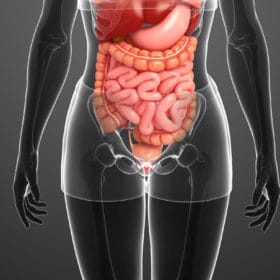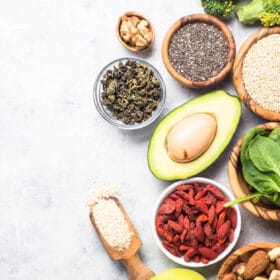At the latest since fitness sports have made their way into the mainstream, the formation of myths has also gained extreme momentum. In addition to the consumption of at least 300 grams of protein per day, these myths naturally also include the avoidance of Carbohydrates in the evening. It should be clear that this alleged truth is more a matter of bro-science, but this aspect is nevertheless particularly persistent. In the following article, we would therefore like to look at this topic and examine what is really true about this myth and which of the many experts is right.
Where does this myth actually come from?
To get to the bottom of this alleged fact, we first need to understand why limiting carbohydrate intake in the evening is recommended in the first place. The reason why most experts recommend this approach is simply the assumption that you will go to bed shortly after consuming carbohydrates. As a result, your metabolism slows down, which in turn increases the likelihood that the unused energy in the form of carbohydrates will be stored as depot fat. In addition, many experts assume that insulin sensitivity is significantly reduced at night, so that the path to the fat cells is literally mapped out. Let's take a closer look at the assumed slowdown in metabolism at night, because the logic behind this is quite plausible.
After all, as soon as you sleep, your body goes into a resting state and uses less energy than when you are awake. Or is it different? Japanese researchers have looked into this question and have actually found that energy consumption in the first half of the sleep phase is actually up to 35 percent lower. What is particularly interesting, however, is the fact that the Japanese scientists were also able to prove that the metabolic rate can sometimes increase significantly, especially during REM sleep. This shows that, on average, energy consumption during sleep does not differ significantly from energy consumption at rest. Thanks to this finding, the corresponding justification for avoiding carbohydrates has finally been put to rest.
So the whole "don't eat carbs in the evening" is bro-science, right?
Well, not quite. Although we have defused the whole issue of reducing the metabolic rate, this means that the problem of insulin sensitivity and glucose tolerance still remains. And this is where it gets exciting. As studies from the 1990s show, both blood glucose levels and insulin levels tend to be higher in the evening than in the morning and remain in the blood for longer after a meal. So is this now proof of the myth? Not so fast, because you should bear in mind that the difference between the times of day results from the fact that you have completed a fasting phase of around ten hours in the morning. It is of course obvious that the values regarding insulin sensitivity differ greatly in this respect. However, if you use a hypothetical lunch for such a comparison, a completely different picture emerges because, as in the case of the metabolic rate, there is no great difference.
So does the time of day really make no difference?
In view of the fact that we have already debunked some seemingly carved-in-stone laws in this article, you are of course right to ask yourself whether the time of day makes any difference at all to the intake of carbohydrates. In this regard, we would like to cite another interesting study from Israel. In the course of this study, the scientists divided their test subjects into two groups, all of whom followed a calorie-reduced diet for six months. All subjects were given the same amount of calories and the same macronutrient distribution. The only point in which the two test groups differed was the timing of the carbohydrate intake. While one group consumed carbohydrates evenly throughout the day, the other group was instructed to consume 80 percent of their carbohydrates in the evening and shortly before bedtime. And the results were indeed surprising, as the group that consumed their carbohydrates mainly in the evening not only lost significantly more body fat than the control group, but also reported feeling significantly less hungry.
What is behind the study results?
Particularly in view of the fact that in recent years completely contradictory information has been propagated, it comes as a shock that everything now seems to be completely different. The researchers explain their study result by a shift in the hormonal milieu, as the insulin level of the test group, which consumed carbohydrates predominantly in the evening, was also significantly lower on average than the insulin level of the comparison group. In addition, this group had a significantly higher blood concentration of the hormone adiponectin, which is associated with increased insulin sensitivity and improved fat burning. What is also very surprising is the fact that the test group that ate carbohydrates in the evening had a significantly more favorable ratio between LDL and HDL cholesterol.
So what is the verdict?
Of course, we are far from recommending that we throw all the rules overboard and have a carbohydrate party every night from now on, as the results of the Israeli study would need to be backed up by further research. Nevertheless, we can say with a fair degree of certainty that consuming carbohydrates in the evening is much less bad than many experts would have us believe. The rule "don't eat any carbohydrates in the evening" can therefore be safely shelved as bro-science. Now that you know this, you can enjoy your pasta in the evening again without feeling guilty - at least as long as you stick to your calorie balance.






